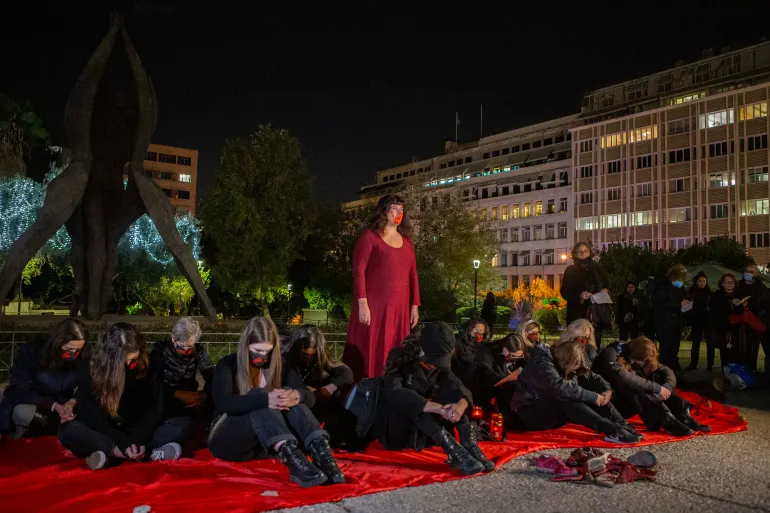Athens, Greece – On the evening of April 1, a Monday, 28-year-old Kyriaki Griva’s ex-partner stabbed her to death outside a police station in northern Athens.
She was the fifth woman to be killed by an ex or partner this year in Greece.
Griva had just left her local police station, which she visited in fear of her former boyfriend, who had been loitering near her house.
She had previously filed formal complaints against him but on this occasion, declined to do so. While her reasoning is not clear, victims of domestic violence often choose not to make formal complaints because they are terrified of repercussions, worry the process may be triggering and have little faith in agencies that are meant to provide security.
Griva requested a police escort back home that night. She was directed to a police hotline, which she called. An operator reportedly told her that “patrol cars are not a taxi service”.
Griva was then killed shortly afterwards in the vicinity of Agioi Anargyroi station.
The 39-year-old suspect was imprisoned awaiting trial; he is reportedly being monitored in a psychiatric ward.
In response to the murder, the Minister for Civil Protection Michalis Chrisochoidis promised an in-depth investigation and expressed support for including the term femicide within the Greek penal code – a point campaigners have long pushed for – although he added that this would ultimately be up to the Ministry of Justice.
Greek Prime Minister Kyriakos Mitsotakis rebutted criticism of his police minister saying, “the fault cannot always lie at the top when something goes wrong in the state”, but acknowledged that the government needed to do more.
Meanwhile, lawyers representing Griva’s family have since called for the officers who spoke to Griva that day to be investigated for potential negligence and manslaughter.
Charities and families of victims have long accused Greek authorities of not taking domestic violence seriously enough.


